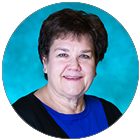Admission Requirements
To be considered for this program, you must:
-
Currently hold a Master of Social Work (MSW) degree from a CSWE-accredited program with 3.0 GPA.
-
At least 3 years full time and equivalent practice experience beyond the master’s degree. Resume will be required to document experience.
To apply, please submit your completed online application and transcripts. Please note that the materials you are required to submit may vary depending on the academic program to which you apply. More information for international applicants.
A Personalized Guide to Completing Your Doctorate
Earning your online Doctor of Social Work requires commitment, perseverance, and hard work. You can do it, and Walden is here to help—with our Doctoral Degree Coach™.
-
Map and Track Milestones: Break your research down into manageable, sequential steps. See where you are, what’s ahead, and what you’ve already accomplished—all in one place.
-
Meet Weekly Targets: No more guesswork. Set prompts based on your to-do list and receive reminders and updates directly to your inbox.
-
Connect With Faculty: Stay on the same page and keep your progress on track. With shared access to your dashboard, your chair can easily guide you through your checklists, goals, and timelines.
-
Access Helpful Resources: Quickly find support from the right person at the right time. Our comprehensive resource guide points you in the right direction—no more frustrating searches.
Academic Residency
The Doctor of Social Work academic residency gives you an opportunity to interact with your peers and faculty, build your clinical skills, and strategize for your action research project. These experiences are designed to enhance your development as both a social work clinician and a scholar-practitioner so that you’re empowered to create positive social change.
During the four-day DSW program academic residency, you’ll be able to:
-
Critically assess research.
-
Use critical thinking skills expected of doctoral students
-
Demonstrate an understanding of appropriate research problems that can be utilized for the capstone process.
-
Effectively communicate with others
-
Effectively communicate research ideas.
-
Conceptualize capstone research studies that have the potential to contribute to positive social change
-
Demonstrate an understanding of the steps required to conduct a DSW capstone research study.
For your convenience, the academic residency is scheduled several times throughout the year. They are held in a variety of locations in the United States and virtually during the COVID-19 pandemic. You can participate in the residency as soon as you begin your Doctor of Social Work program, and it must be completed before you begin your action research project.
Tuition and Fees
| Curriculum | Requirements | Cost | Total * | |
|---|---|---|---|---|
| Tuition-Coursework | 58 quarter credits | $650 per quarter hour for coursework credits | $37,700^ | |
| Tuition-Doctoral Study/Project | 20–130† quarter credits | $650 per quarter hour for doctoral study/project credits | $13,000–$84,500* | |
| Program Fee | $175 per quarter | $1,575–$5,600* | ||
| Residency Fee | One Residency | $1,420 (virtual) $1,520 (in person: travel, lodging and other expenses are additional) | $1,420–$1,520 | |
| Estimated Range: | 2.5-Year | 8-Year | ||
| $53,695* | $129,320*+ | |||
| (assuming completion in a 2.5-year timeframe) | (assuming completion in an 8-year timeframe) | |||
These are ranges of what a student can expect in terms of time and tuition cost to complete a degree. It does not include other fees, nor is it adjusted for tuition increases over time. Walden faculty has concluded that generally students who do not complete their program in eight years are unlikely to complete and only allow students to exceed that time frame when a student petitions for an extension and provides good reason for the delay and assurances that obstacles to completion can be overcome. Time is calculated using the time allowed for each semester or unit that the student completes. Students are encouraged to work continuously during the program so as not to extend the time needed to complete the degree as work can become stale and students lose focus. Students who earn two grades of “Unsatisfactory,” who repeatedly drop a course before a semester or unit has been completed, or are unable to complete in the eight year time frame, should expect that they may be dismissed from the program. Walden believes that it is in the best interest of a student who is unable to complete the degree in the stated ranges to strongly consider withdrawal or obtaining a lesser degree.
Time to completion and cost are not estimates of individual experience and will vary based on individual factors applicable to the student. Factors may be programmatic or academic such as tuition and fee increases and/or the student’s transfer credits accepted by Walden; program or specialization changes; unsuccessful course completion; credit load per term; writing, research and editing skills; use of external data for their doctoral study/dissertation; and/or individual progress in the program. Other factors may include personal issues such as the student’s employment obligations; care giving responsibilities or health issues; part-time vs. full-time enrollment; leaves of absence; and/or other personal circumstances.
Tuition and fees are subject to change. Books and materials are not included. Students may incur additional costs for remedial writing assistance, if necessary.
^This assumes students successfully complete their coursework on the first attempt.
† Based on a 2.5-year minimum completion requirement and an 8-year maximum timeframe as outlined in Walden academic policy.
*Tuition and fees will be higher if students petition to extend the 8-year maximum timeframe or choose to take more expensive elective courses.
+Tuition and time to complete may be reduced if transfer credits are accepted, or if you receive grants, scholarships or other tuition discounts. For a personalized estimate of the number of your transfer credits that Walden would accept, call an Enrollment Specialist at 844-642-0198.
Program Outcomes
Go Boldly Forward With Our DSW Program
Walden’s Doctor of Social Work online program provides an immersive and engaging learning experience that fosters your growth as a social work leader. Build a powerful doctoral skillset you need to complete your capstone with confidence. At every step, our faculty are here to support you based on more than 50 years of serving doctoral learners at a distance.
Learning Outcomes
As a graduate of our DSW program, you will be prepared to:
- Identify social work practice gaps through the use of theory, current research, and best practices.
- Demonstrate the ability to employ a variety of research approaches to understand or address social work practice problems.
- Synthesize research related to social work interventions, social programs, and the social work practice knowledge base.
- Critically evaluate social problems and social work practice gaps from a culturally aware, ethical, and empirically-driven perspective.
- Demonstrate the ability to collaborate with a variety of stakeholders to advocate for social change.
- Demonstrate the ability to collaborate with a variety of stakeholders to advocate for policies and practices that advance the economic and social well-being of culturally diverse clientele.
- Demonstrate advanced knowledge and skill in a specialized area of social work practice.
Testimonials
FAQ About Walden’s Online Doctor of Social Work (DSW)
A: A DSW degree program prepares you to be an authoritative advocate for social justice. Career options include leader in agencies and organizations, program director, evaluator of social work practice and agencies, or supervisor in social work organizations. Career options may require additional experience, training, or other factors beyond the successful completion of this degree program.
Social Work Month is celebrated each March. According to the National Association of Social Workers (NASW), the month serves as an opportunity to highlight the important contributions social workers make to society. Walden University’s own Dr. Barbara Solomon, a well-known professional in the field, is identified by the NASW as a NASW Pioneer and is recognized in the California Social Work Hall of Distinction. Walden named its School of Social Work in honor of Dr. Barbara Solomon in recognition of her impact on the social work profession and her service to Walden as a longtime board member.
High-quality social work degree programs will offer diverse focus areas or specializations to provide a more direct path toward making a difference in your particular area of interest. When you enroll in Walden University’s Doctor of Social Work (DSW) program, you can choose from three specializations, including:
- Advanced Clinical Practice and Supervision
- Impact Leadership in Social Work Administration
- Social Work Education
The different specializations can guide where you work and what type of job you might take. And while each specialization centers on a different aspect of the social work field, they share similar strengths including foundational studies, the development of scholarly research skills, practical exercises, and opportunities for field experiences.
Earning an advanced degree in social work, such as a Doctor of Social Work (DSW) degree, can prepare you for a variety of roles, including medical social worker, depending on your training and experience. Professionals serving in this capacity are critical to our healthcare system, helping patients understand their medical diagnoses and navigate the system so that they get the care and assistance they need. Medical social workers also work closely with doctors and nurses to understand how an illness or disease may affect a patient’s mental or emotional health. According to the U.S. Bureau of Labor Statistics, employment of healthcare social workers is expected to increase 11% by 2028, adding more than 81,200 new jobs.1
1Source: www.bls.gov/ooh/community-and-social-service/social-workers.htm
If you’re ready for a career devoted to making a difference in people’s lives, social work is a great field and you have two great degrees at the doctoral level from which to choose. To determine which program better aligns with your interests and goals, it’s helpful to look at the differences. In a PhD program, students focus on advancing their skills as researchers and typically seek careers in academia. Students who choose to pursue their Doctor of Social Work (DSW) degree focus more on how research can be applied to social work programs and policies, as well as the key leadership and management skills needed to improve their practice. To summarize, a PhD better prepares you to teach, while a DSW prepares you for a professional career in the field.
According to the U.S. Bureau of Labor Statistics, overall employment in the field of social work is expected to grow much faster than the average for all occupations from 2018 to 2028.1 This growth is projected to include a variety of roles within the field, and a DSW can help prepare you for many—if not all—of them. These roles include:
- Leader in agencies and organizations
- Mental health and substance abuse program director
- Social work agency evaluator
- Supervisor in social work organizations
1Source: www.bls.gov/ooh/community-and-social-service/social-workers.htm
Career options may require additional experience, training, or other factors beyond the successful completion of a DSW degree program.
1Source: Bureau of Labor Statistics, Occupational Outlook Handbook, Social Workers, SOC code 21-1020. Retrieved May 2021. National long-term projections may not reflect local and/or short-term economic or job conditions, do not guarantee actual job growth, and are subject to change.
2Source: National Center for Education Statistics (NCES) Integrated Postsecondary Education Database (IPEDS). Based on the most recent year of completions survey data available (2019), includes all classifications of instructional programs (CIP) codes for Doctor’s degree (Award level 17 – Doctor's degree – research/scholarship; Award level 18 – Doctor's degree – professional practice; Award level 19 – Doctor's degree – other). Available at https://nces.ed.gov/ipeds/use-the-data. (Retrieved May 2021; may consist of or include provisional release data.)
Note on Licensure:
The Doctor of Social Work (DSW) program is not geared towards licensure preparation. Instead, it is designed to guide students towards administrative or academic pathways within the field. This program prioritizes the development of skills and knowledge necessary for roles in administration or academia.










